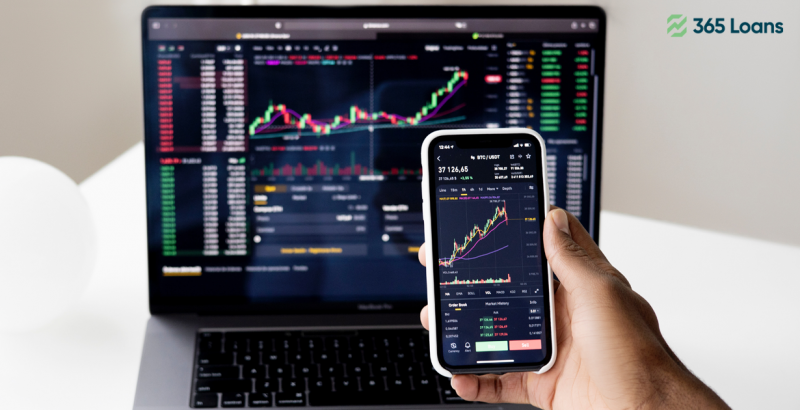Global market trends and economic conditions are critical factors that shape the world’s financial landscape. They influence how businesses operate, people consume goods and services, and countries interact.
Therefore, understanding these trends is essential for making informed investment decisions, managing risks, and capitalizing on emerging opportunities.
This post will explore the latest global market trends and economic conditions and their potential impact on your finances.
The Current Global Economic Landscape
As we move into 2023, the global economic landscape continues to evolve. The COVID-19 pandemic, while still present in many parts of the world, has receded in severity as vaccination rates have increased. Therefore, the world economy is anticipated to persist in recuperation, albeit at a more moderate pace than in 2021.
According to the IMF, the world economy is projected to grow by 4.9% in 2023, a slight decline from the 6% growth in 2021. This slowdown is largely due to weaker growth in advanced economies, which are expected to grow by 3.6% in 2023, compared to 5.1% in 2021. However, emerging markets are projected to continue to play a vital role in driving global growth, with the IMF forecasting a growth rate of 5.6% for these economies in 2023.
The recovery in the global economy has been uneven, with some countries and sectors experiencing stronger growth than others. For example, the economy has rebounded strongly in the United States, fueled by government stimulus programs and a robust vaccination campaign. However, other countries, particularly those with limited vaccine access, continue to struggle.
The Role of Emerging Markets
Despite the challenges posed by the pandemic, emerging markets such as China, India, and Brazil continue to offer significant growth opportunities for businesses and investors. According to the IMF, these economies are projected to grow by 5.6% in 2023, up from 6.7% in 2021. The rising middle class and increasing consumer demand for goods and services fuel this growth.
China, the world’s second-largest economy, is expected to continue its rapid growth, with a projected growth rate of 5.8% in 2023. India, the world’s sixth-largest economy, is also expected to experience robust growth, with a projected growth rate of 8.5% in 2023, up from 6.9% in 2021. It is anticipated that Brazil, which holds the top position in terms of economy in Latin America, will experience a growth of 2.2% in 2023, compared to a decline of 1.1% in 2021.
However, emerging markets also face significant challenges, including rising inflation, high levels of public debt, and geopolitical risks. These risks highlight the need for investors and businesses to carefully evaluate potential opportunities and risks when considering investments in emerging markets.
Impact of Fiscal and Monetary Policies
Fiscal and monetary policies are critical tools that governments and central banks use to manage their economies. Fiscal policies involve government spending and taxation, while monetary policies involve setting interest rates and controlling the money supply.
Governments and central banks implemented expansionary fiscal and monetary policies during the pandemic to support their economies. These policies helped to stimulate demand, maintain financial stability, and prevent a full-blown economic crisis.
However, these policies have potential downsides, such as inflation and rising public debt. To manage these risks, governments and central banks must implement policies that balance economic growth with long-term stability.
The Future of Work
The COVID-19 outbreak has expedited the transition toward remote work and digitalization. This inclination will persist as more firms implement flexible work options to entice and retain skilled personnel.
The rise of automation and artificial intelligence also poses challenges and opportunities for the global workforce. While these technologies may lead to job displacement in some industries, they also create new jobs and opportunities in others.
Sustainable Investing
Sustainable investing is an emerging trend that balances financial returns with social and environmental benefits. Investors increasingly focus on companies prioritizing environmental, social, and governance (ESG) factors. This trend is driven by concerns over climate change, social inequality, and corporate governance. Sustainable investing offers investors the opportunity to generate returns while positively impacting society and the environment.
Conclusion
Global market trends and economic conditions significantly impact our lives, whether we realize it or not. Understanding these trends allows us to make informed financial decisions and take advantage of emerging opportunities.
As we have seen, the global economy is recovering, but risks and challenges must be managed.
We can navigate the evolving economic landscape and secure our financial futures by focusing on emerging markets, balancing fiscal and monetary policies, embracing digital transformation, and adopting sustainable investing practices.
At 365 Loans, we understand the importance of staying up-to-date with global market trends and economic conditions. Visit our website at 365loans.org to learn more. Let us help you secure your financial future in an ever-changing global market.







